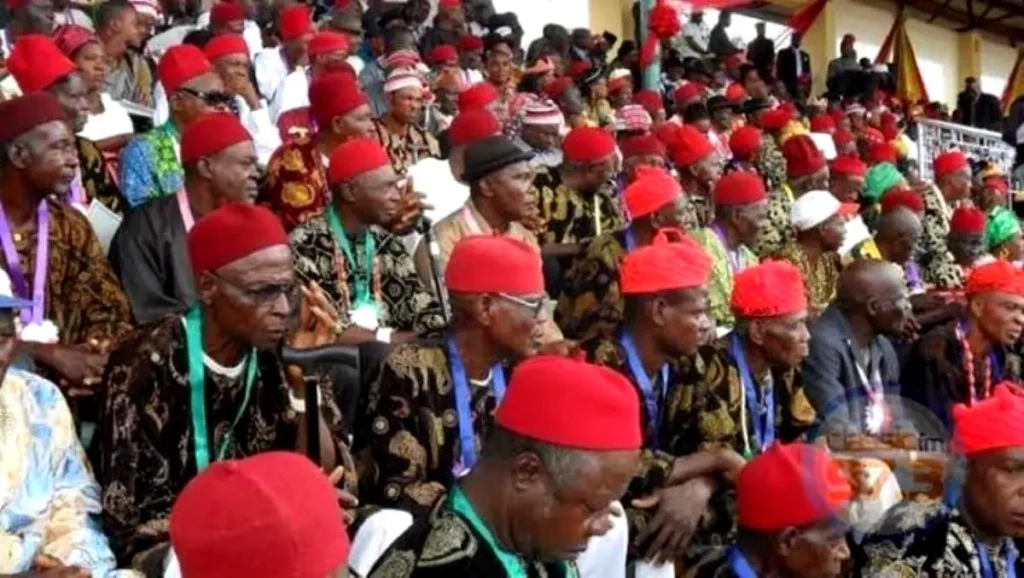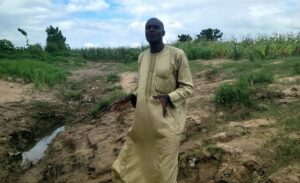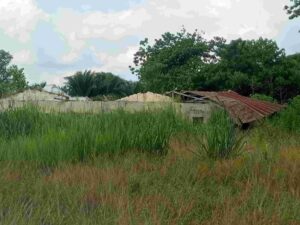One of the remarkable facts of Nigeria’s First Republic was the amazing economic feat of the Eastern Region. According to records, the economy of the former Eastern Region was one of the fastest growing economies globally in the 1960s.
Yes, in the cash crop economy of the era with its main goal of feeding the European metropolitan industries, the Eastern Region then comprising the current five states of the South-East and the four states of South-South namely Rivers, Bayelsa, Cross Rivers and Akwa Ibom, boasted of a comparative advantage in palm produce. Thus, as the South-West supplied cocoa, the North groundnuts, the East supplied the world palm oil and other derivatives from palm trees.
In the area of industrialization, the Eastern Region more than matched the South-West with the creation of industrial layouts in Aba and Trans-Amadi in Port Harcourt. And the immediate result of this economic boom was that in a few years, the Eastern Region had not only caught up with the West but arguably overtook it in the area of education.
All these achievements in the East during the First Republic did not drop from the skies, or attained as Shakespeare would say, by a single flight. Indeed, the growth and development of the Eastern Region in the First Republic were products of intentional planning and hard thinking of an informed and people-oriented leadership provided by the astute Dr Nnamdi Azikiwe and more importantly, the pragmatic, Sir M. I. Okpara.
One essential feature of that leadership was the fact that it attracted and utilized the best brains in the region during that era. Dr. Pius Okigbo, foremost development economist, Chief Jerome Udoji, foremost bureaucrat, and Dr. Akanu Ibiam, statesman, educationist, medical missioner and Governor of Eastern Region from October 1960 to 1966, were among the few eggheads. And what is more, the leadership recruitment process then was open and governed by the societal values of integrity and qualification by merit.
Sadly, the leadership situation in the South-East today is nothing to write home about and the consequences are there for even a casual observer to notice. The entire South-East region has become a huge violent crime scene with garden variety of non-state actors successfully wresting authority from the so-called elected officials and dishing out orders that can only be ignored at the peril of poor citizens.
Today, all over the South-East, known and unknown gunmen are on the prowl; kidnappers, believed to be largely herders, are taking poor citizens hostage everyday; separatist agitations have intensified; uniformed men and women are mounting roadblocks every hundred metres and fleecing rural folks; Ebubeagu militia intended to protect the people are allegedly turning their guns on innocent youths, or forcefully dispersing unarmed women holding community development meeting; and the governors have lost their legitimacy or at best gone AWOL.
The question is how did a region that started out with a superior leadership in the First Republic degenerate to this abysmal level of leadership such that people of questionable backgrounds, people with doubtful educational qualifications and even people who have failed even in the basic role of holding their own families together have mounted the leadership saddle in the South-East?
Many reasons have been adduced to explain the current failure of leadership in the South-East.
First and foremost, politics has lost its ennobling objective in the South-East with the emergence of “individualists,” the category identified by notable American political scientist, Richard Fenno, as those in politics to pursue their personal interests rather than public interests, in his famous classification of politicians based on the reasons they went into politics. In the First Republic, politics was all about service and little about personal interests; but today, personalist rule and all manner of prebendalism have taken over our politics. This explains why a governor can open the treasury of his state for his family to access arbitrarily as was recently alleged in Imo State.
Second is the post-war character of Igbo body politic that stripped it of all its autonomous capacity. Unlike in the Yoruba and Hausa-Fulani politics, most important decisions in Igbo politics are taken outside Igboland or by surrogates to bigger politicians from outside the region. Such decisions as who becomes a governor, senator or member of the House of Representatives, minister or ambassador from the South-East are for the most part determined by external forces not interested in what is good for the region. The desperation to survive after the civil war and the many obstacles put by the Nigerian state in the way of Igbos made the recruitment of this quisling group from the South-East by the ruling national elite very easy.
But the most atrocious assault on leadership in the South-East has come from the loss of the pristine Igbo values of honest hard-work, which has enthroned a group of nouveau riche who see political power – rather than service to the people – as a crowning glory of their questionable wealth. Today, it is no longer strange to see in position of leadership in the South-East people with a history of violent crime and advance fee fraud. And this is because with poverty in the land, the convertibility ratio between money and power has increased exponentially.
It is sad that after the civil war, successive governments at the centre behaved in such a manner to suggest that the war was not yet over, and the South-East was still a conquered territory. The absence of industries and other federal presence in the region appears to confirm this position. But it is even worse that the leadership in the region after the war especially since the return to civil rule in 1999 has been predatory and selfish, without any thought for the plights of the people.
Thus, after struggling to get into university against the odds of federal character stacked against them, young people from the region graduate to face periods of unemployment apparently longer than their colleagues from other parts of the country. With absence of hope and trust in the country that should ordinarily provide for them, and an unfeeling leadership bereft of ideas in the region, is it any surprise that the youths in the South-East are romanticizing about another country that they can live and attain their fullest potentials?
It is our opinion that time is running out on Nigeria as a nation and the South-East as a region. There is therefore an urgent need to reinvent the leadership in the South-East zone to start with.
First, as a people, the South-East must begin the process of cleaning up or disinfecting the politics of the zone in such a manner that it would be appealing and attractive to their best and brightest who are all over the world lending their knowledge, skills, and talents to the development of other countries. In this regard, Anambra State has given the region something to build upon with the election of Professor Chukwuma Soludo as governor. As long as fearsome roughnecks ever ready to unleash violence still bestride the narrow world of South-Eastern politics, brilliant people would never look in or take more than a casual interest in politics as a leadership recruitment process.
Second, the region must go back to the emphasis on knowledge and mentoring which defined the leadership recruitment in the First Republic. Azikiwe and Okpara were able to build a thriving economy and a service-oriented politics because they valued knowledge and invested in human capital development. Indeed, one of Azikiwe’s greatest odysseys as a successful leader and politician was his unmatched record of helping his contemporaries and other younger people especially in the Eastern Region to ‘see the light’ by aiding them to secure overseas education either through scholarship or other assistance in their search of the proverbial golden fleece. Many of these proteges like Dr. Nwafor Orizu, K.O. Mbadiwe, Mazi Mbonu Ojike, Mokwugo Okoye, etc. returned to join the Great Zik in the nationalist agitations and post-independence politics.
Third, and perhaps more germane, is the need to return to the pristine values that undergirded the pre-war Igbo society which celebrated honest hard work and achievement. The over-emphasis today on wealth – especially of dubious sources – has become the bane of Igbo society. It is abominable to see some parents in the region accepting without questions cash and other gifts from their male and female children whom they should in fact be providing for, and who are without any known legitimate means of livelihood. This reprehensible behaviour in no small measures contributes to the alarming rate of drug addiction, prostitution, and political thuggery among the youth population in the region. You cannot build an ennobling politics in a decayed society.
Ohanaeze Ndigbo though on the path of self-redemption over these past few years, continues to be reactionary on issues instead of being proactive and is still heavily burdened by the crisis of confidence. As the Igbo adage goes, an “elder does not sit at home and allow a goat deliver in tether.” The rank and file must resist the filthy lucre often dangled at them by wealthy but crooked politicians to buy their conscience and bury the truth. They must lead the way in the path of demystifying power in the South-East region.
Also, for Ohanaeze to continue to be relevant and deliver on its promise, it must have to seriously consider alternative sources of funding not dependent on the whims of South-East governors and sundry political actors in the region. To be truly independent, the Pan-Igbo body must completely unshackle from this mercantile class that has come to believe that by making some financial contributions to the organization, it should be tied to their apron strings.
Finally, let this be a clarion call on all well meaning Ndigbo, politicians with conscience, academics, thought leaders and in fact, all citizens and stakeholders, to come together in order to begin the process of salvaging Alaigbo. In politics, as in business, you don’t get what you deserve. You get what you can negotiate.
If the South-East desires to be a force to be reckoned with and plan to forge a formidable alliance with partners in the wider national politics from a position of strength, the zone must rise from its slumber. We must fix our self-serving, destructive politics and rudderless leadership or risk being left behind to play second fiddle. The time to act is now!
This editorial is part of activities by the African Center for Transparency (ACT) under the Collaborative Media Engagement for Development Inclusivity and Accountability Project, a multi-level intervention for media independence and government accountability, managed by the Wole Soyinka Centre for Investigative Journalism (WSCIJ) and supported by MacArthur Foundation.



